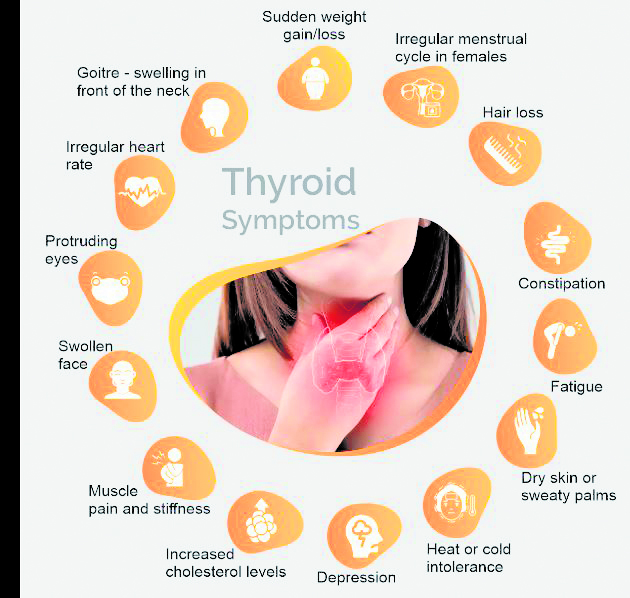
January is observed as Thyroid Awareness Month. Thyroid gland is responsible for important functions of the body such as regulating the body’s metabolic rate, growth and development. It also plays an important role in controlling heart function, muscle and digestive function, brain development and bone maintenance.
Why is Thyroid Disorder on the rise?
According to the American Thyroid Association, shockingly, up to 60 percent of those with thyroid disease are unaware of their condition. It is also observed that women are five to eight times more likely than men to have thyroid problems! In addition, one woman in eight will develop a thyroid disorder during her lifetime.
These alarming statistics leads you to wonder why thyroid disease has become so prevalent. The answer lies entirely in lifestyle choices, such as poor eating habits, chronic stress and exposure to toxins and pollutants.
Thyroid Disorders & their Symptoms
Thyroid disease refers to a number of conditions that affect how the gland functions. The thyroid can be either overactive or underactive and both conditions can lead to health problems.
Thyroid imbalance affects your metabolism which is why we can see fluctuations in body weight. If you are experiencing weight gain, brain fog, chronic fatigue, low body temperature, low heart rate, depression, you could have Hypothyroidism. In simple terms, it means that the thyroid gland is underactive and can’t produce enough of its hormones. Treatment usually includes thyroid hormone pills. It’s important to get the dosage right.
The complete opposite end of the spectrum would be Hyperthyroidism, the thyroid gland is overactive and so it produces excessive thyroid hormone. All the physiological processes in Hyperthyroidism speed up leading to restlessness, nervousness, insomnia, fast heart rate and weight loss. High Thyroxine and low TSH levels can indicate that your thyroid gland is overactive. Treatments for hyperthyroidism block it from producing its hormones.
Keep your Thyroid healthy by:
=Sticking to a diet that is low in sugar and processed foods. Excessive sugar can lead to inflammation, which can worsen the symptoms of an underactive thyroid.
=Limiting your intake of cruciferous vegetables. Vegetables such as cabbage and broccoli can interfere with thyroid hormone production.
=Finding ways to reduce your stress. It’s been shown that stress can cause thyroid hormone resistance.
=Exercising three to five times a week. Increasing your muscle mass can boost your metabolism and help to avoid weight gain or lethargy.
=Maintaining a healthy body weight. The higher your body weight, the more thyroid hormone your body will require.
Thyroid awareness is key to helping people recognise the symptoms of thyroid problems. Most of the time, thyroid issues aren’t serious and are only treated once symptoms become bothersome. With better awareness, people will know when to talk to their doctors about testing and treatment.
The author is the Head of Department & Senior Consultant of Internal Medicine & Diabetology at Sanar International Hospitals.















